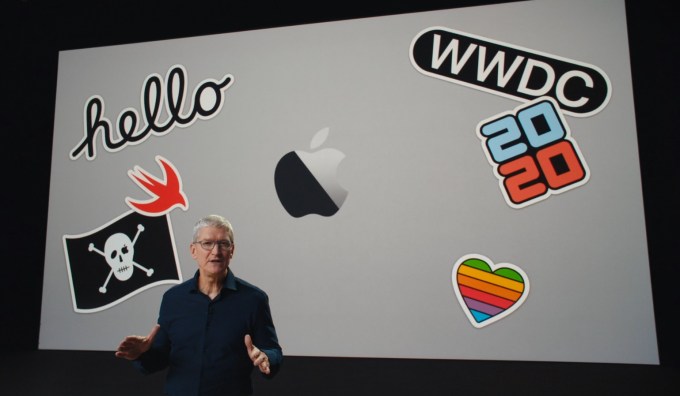Welcome back to This Week in Apps, the Extra Crunch series that recaps the latest OS news, the applications they support and the money that flows through it all.
The app industry is as hot as ever, with a record 204 billion downloads and $120 billion in consumer spending in 2019. People are now spending three hours and 40 minutes per day using apps, rivaling TV. Apps aren’t just a way to pass idle hours — they’re a big business. In 2019, mobile-first companies had a combined $544 billion valuation, 6.5x higher than those without a mobile focus.
In this Extra Crunch series, we help you keep up with the latest news from the world of apps, delivered on a weekly basis.
This week, we’re looking at the highlights from Apple’s first-ever virtual Worldwide Developers Conference (WWDC) and what its announcements mean for app developers. Plus, there’s news of the U.S. antitrust investigation into Apple’s business, a revamp of the App Store review process, and more. In other app news, both Instagram and YouTube are responding to the TikTok threat, while Snapchat is adding new free tools to its SDK to woo app developers. Amazon also this week entered the no-code app development space with Honeycode.
WWDC20 Wrap-Up

Image Credits: Apple
Apple held its WWDC developer event online for the first time due to the pandemic. The format, in some ways, worked better — the keynote presentations ran smoother, packed in more content, and you could take in the information without the distractions of applause and cheers. (If you were missing the music, there was a playlist.)
Of course, the virtual event lacked the real-world networking and learning opportunities of the in-person conference. Better online forums and virtual labs didn’t solve that problem. In fact, given there aren’t time constraints on a virtual event, some might argue it would make sense to do hands-on labs in week two instead of alongside all the sessions and keynotes. This could give developers more time to process the info and write some code.
Among the bigger takeaways from WWDC20 — besides the obvious changes to the Mac and the introduction of “Apple silicon” — there was the introduction of the refreshed UI in iOS 14 that adds widgets, an App Library and more Siri smarts; plus the debut of Apple’s own mini-apps, in the form of App Clips; and the ability to run iOS apps on Apple Silicon Macs — in fact, iOS apps will run there by default unless developers uncheck a box.
Let’s dig in.
- The iPad’s influence over Mac. There are plenty of iOS apps that would work on Mac, but making the choice an opt-out instead of an opt-in experience could lead to poor experiences for end users. Developers should think carefully about whether they want to make the leap to the Mac ecosystem and design accordingly. There’s also a broader sense that the iPad and the Mac are starting to look very similar. The iPad already gained support for a proper trackpad and mouse, while the Mac with Big Sur sees the influence of design elements like its new iPad-esque notifications, Control Center, window nav bars and rounded rectangular icons. Are the two OS’s going to merge? Apple’s answer, thankfully, is still “NO.”
from Apple – TechCrunch https://ift.tt/2NBOSIM
Comments
Post a Comment